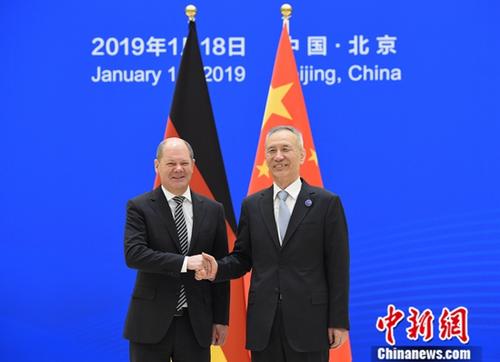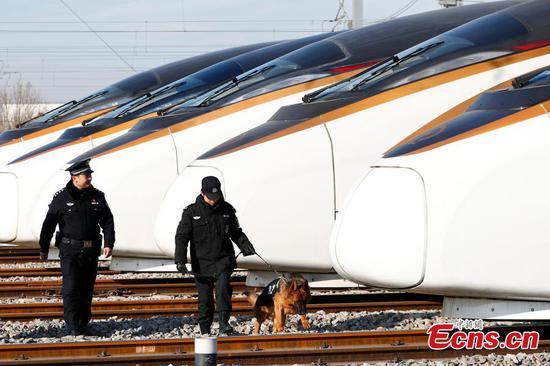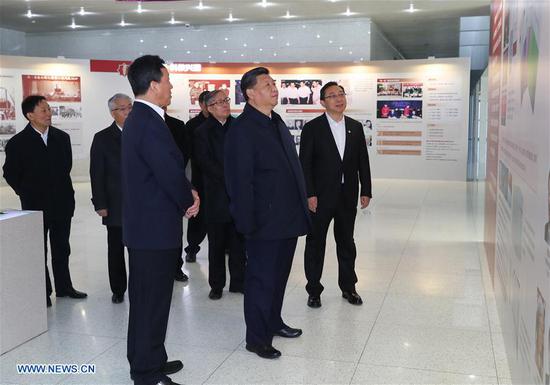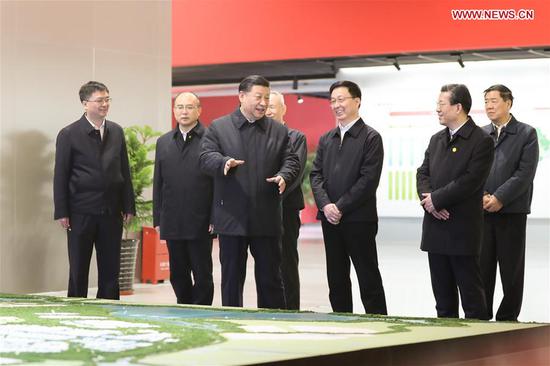
Vice-Premier Liu He (R)shakes hands with German Vice-Chancellor Olaf Scholz at the China-Germany High Level Financial Dialogue at Diaoyutai State Guesthouse in Beijing on Friday. (Photo/China News Service)
China and Germany are committed to expanding two-way opening-up and deepening cooperation to bring bilateral financial relations "to a new high", according to a joint statement issued after a high-level dialogue on Friday.
Further cooperation in finance includes developing a new capital market connection mechanism and encouraging banks and security and insurance companies from each country to open in the other country, according to the statement of the second China-Germany High Level Financial Dialogue. Another measure would be to promote use of Chinese currency in a German offshore yuan center.
This round of the dialogue, a key platform for communication and policy coordination, was co-chaired by Chinese Vice-Premier Liu He and German Vice-Chancellor and Minister of Finance Olaf Scholz in Beijing.
China welcomes qualified German-invested banks in China to apply for depository business licenses for Chinese Depository Receipts-certificates that allow investors to hold shares listed across borders, such as US depositary receipts, according to the statement, released on the website of China's Ministry of Finance.
Both sides welcomed the signing of the Memorandum on D-share Project Cooperation, between the Bank of China and the China Europe International Exchange, supporting the listing of Chinese enterprises on Germany's financial market, it said.
Leaders from the two sides agreed that the exchange will be an important platform for launching China A-shares index derivatives and to support the development of the offshore yuan market in Frankfurt. Through it, German issuers can also issue yuan-denominated bonds and Chinese issuers can list stocks and bonds in Germany.
The two countries are committed to ensuring nondiscriminatory, open market access and a stable institutional framework, and to easing existing market access and investment barriers to improve the environment for foreign companies in both countries, Liu said at a news conference after the dialogue.
"With uncertainty in the global economy growing, it is significant for both sides to enhance macroeconomic policy cooperation and coordination between China and Germany, and it is also important for the economic development of Europe and the whole world," Liu said.
The two sides will make joint efforts to improve international economic governance, maintain the global multilateral system, combat trade protectionism, support the rules-based multilateral trading system with the World Trade Organization as its center and promote an open world economy and global economic growth, he said.
Central bank Governor Yi Gang, China Banking and Insurance Regulatory Commission Vice-Chairman Wang Zhaoxing and China Securities Regulatory Commission Vice-Chairman Fang Xinghai signed memorandums of understanding on regulatory cooperation with their German counterparts as a result of the dialogue.
Steps for German financial institutions to further enter the Chinese market and enhance cooperation with institutions there were clarified after the dialogue, Scholz said. That may also further promote a fair business environment for companies in both countries and tighten economic ties, he said.
China and Germany share strong trade and economic ties, with both economies becoming highly complementary, experts said. China became Germany's biggest trading partner for the first time in 2016, and Germany has been China's largest trading partner in Europe for 43 years.
Li Zhenjing, economic counselor for the Chinese embassy in Germany, said the two countries have achieved a high degree of consensus on promoting bilateral trade and investment and financial cooperation.
As comprehensive strategic partners, China and Germany have a highly complementary economic relationship and bilateral cooperation in broad fields, Li said. "Along with the implementation of more significant opening-up policies in China, German companies are showing greater enthusiasm to participate in the Chinese market."


















































